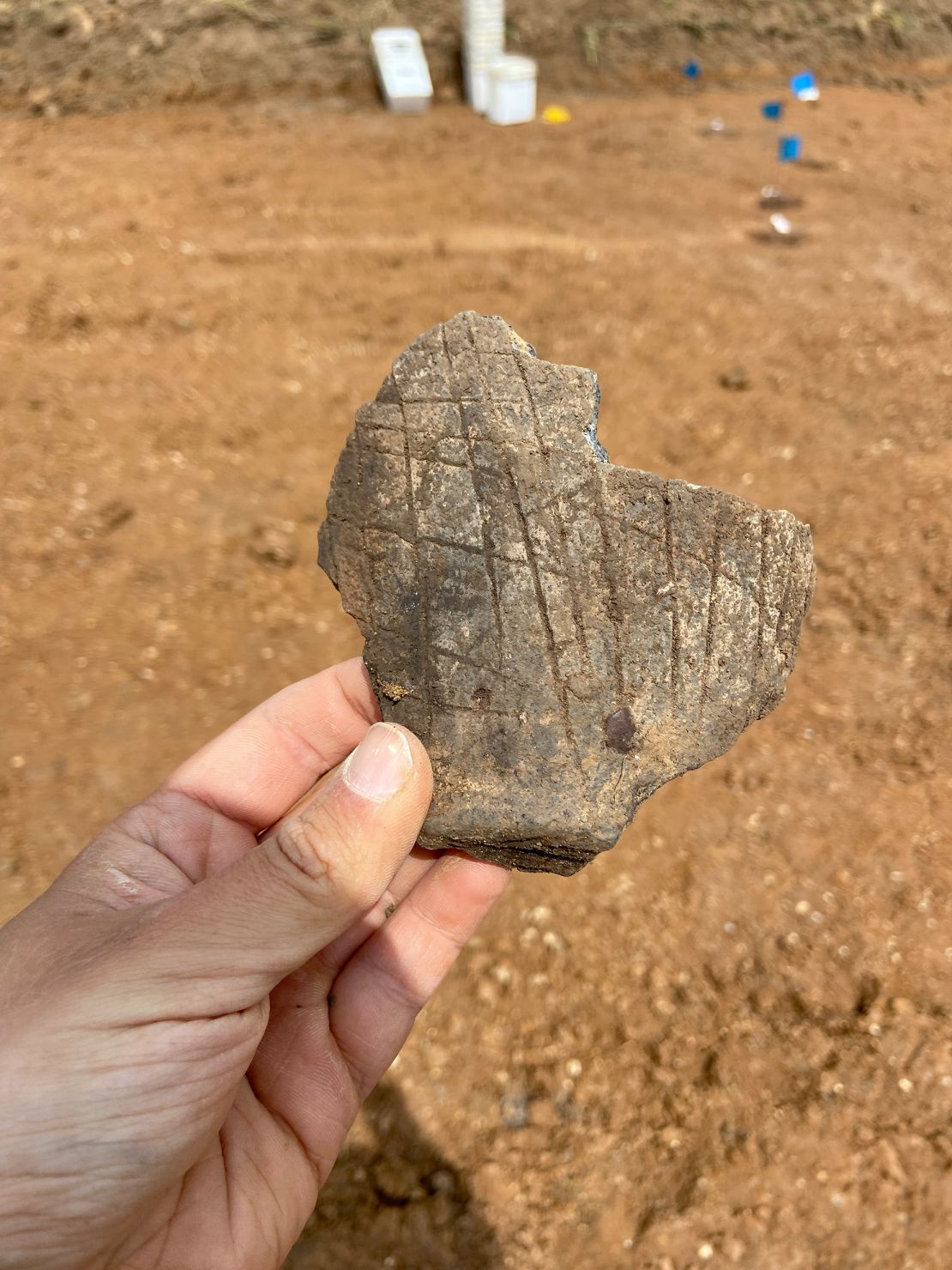Archaeologists have uncovered evidence of Roman, Bronze Age and Iron Age settlements in Essex, southern England, in findings described as “incredibly fascinating.”
The settlements, discovered during excavations before a planned water pipeline was laid, provide a “real picture into what ordinary people’s lives were like,” Benjamin Sleep, a senior archaeology and heritage consultant at Stantec – the company employed to oversee the archaeological element of the scheme – told CNN Tuesday.
Evidence suggests that there was Late Bronze Age activity in the area, dating back roughly 3,000 years, Sleep said.
It was already widely known that the Romans had settled in Essex, but excavating an area as part of a pipeline project offered the opportunity to investigate a huge swathe of the countryside, rather than the more common archaeological sites in or around towns and cities, he added.
The largest settlement found was a farmstead with surrounding buildings that archaeologists believe housed livestock and provided space for metalworking or pottery making, Sleep said.
And the artifacts they uncovered show “that the Romans didn’t come in and wipe everything out and then set up their own settlements,” he said. “It’s very much they’re integrating with communities.”
There was a continuation of certain pottery types, he added, explaining that objects made from locally sourced material continued to be used alongside imported Samian pottery from northern France.
“It’s sort of like you’d have your fine china, then you’d have your everyday pottery,” he said. “These things tend to melt into one another in the archaeological records, which shows there’s continuity there.”

This pottery from northern France, or Gaul as it was known in Roman times, also highlights the level of international trade present at the time, even in the countryside and not just in port cities, he added.
Archaeologists excavated 14 areas across the 19.5-kilometer (12.1-mile) pipeline.
“Not all of those 14 areas turned up absolutely amazing archaeology… the reason they were chosen was because they showed something was going on,” Sleep said. “And then in a couple of these locations we found really interesting stuff.”
The excavation then took place over seven months, with four months of trial trenching from April to September 2023 – where archaeologists investigate the potential of the site – before three months of further excavations, Daniel Wilson, a project manager at the Essex and Suffolk Water Company, told CNN.
“We were all quite excited by the fact that the team had found these finds,” he said. “It gives us the opportunity to engage with local communities on another level and embellish their local history… We already knew of Roman activity in the area… but this adds to it and confirms it.”
Now, the pottery, objects and coins that archaeologists unearthed will go to the local museum, while all the features uncovered have been recorded, photographed and mapped so they will be available to use by future researchers, Sleep said.
Sign up for CNN’s Wonder Theory science newsletter.?Explore the universe with news on fascinating discoveries, scientific advancements and more.

